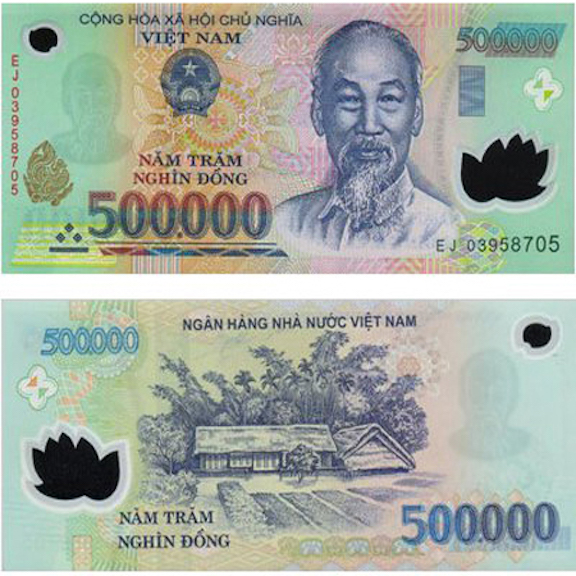Trump administration set to announce Vietnam currency probe
The Trump administration plans to announce an investigation into Vietnam’s currency practices, according to three people familiar with the matter.
The probe, undertaken through section 301 of the 1974 Trade Act, would come after the Departments of Commerce and Treasury in August determined Vietnam had manipulated its currency in a specific trade case involving tires, the people said. The announcement could come as soon as this week, said the people, who asked not to be identified.
Vietnam’s Ministry of Foreign Affairs didn’t immediately respond to an email request for comment.

Vietnam is among the U.S.’s 10 biggest trading partners. The U.S.’s goods-trade deficit with the Asian nation this year reached $34.8 billion by July, the biggest after the shortfalls with China, Mexico and Switzerland.
The Trump administration used a so-called 301 investigation against China to apply tariffs on billions of dollars worth of imports that initiated the trade war between the world’s two biggest economies.
Vietnam is one of the Southeast Asian countries “caught in the U.S.-China crossfire and Trump’s angst over trading partners’ currency manipulation,” said Linda Liu, an economist at Maybank Kim Eng Research Pte. in Singapore. The investigation “has increased the chances of the U.S. imposing tariffs on Vietnam. But the tariffs will likely be targeted and product-specific, rather than sweeping.”
This “warning shot” to Vietnam also might put other regional economies on guard, including Thailand and Malaysia, she said.
Countervailing Duties
A new federal rule published this year allows the U.S. Commerce Department to treat currency undervaluation as a factor in determining countervailing duties on a trading partner.
Vietnam’s central bank has moved to a more market-based framework of setting the currency since 2016, adjusting the dong’s reference rate on a daily basis. It allows the dong to trade within a band of 3% on either side of the reference rate, which is based on eight currencies.
Market reaction in Vietnam was subdued on the news of the U.S. probe. The benchmark VN Index of Vietnamese stocks rose 0.7% as of 9:23 a.m. local time Thursday as investors reacted to this week’s interest-rate cuts. The dong’s reference rate was set by the central bank at 23,213 per dollar Thursday, and the currency traded at 23,184 per dollar as of 10:15 a.m. in Hanoi, unchanged from Wednesday, according to data from commercial banks compiled by Bloomberg.
These types of currency investigations usually take months, so any imposition of tariffs as a result wouldn’t likely occur before the U.S. presidential election in November.
Spokespeople for the Commerce Department and the U.S. Trade Representative didn’t immediately respond to a request for comment. Treasury referred comments to them.
Similar Stories

Mexico announces increased tariffs on apparel imports, forcing a “scramble” to reshore operations in the United States
View ArticleCPA applauds Biden Administration action to block Nippon Steel’s purchase of U.S. Steel
The Coalition for a Prosperous America (CPA) commends President Biden’s decisive action to block Nippon Steel’s $14.9 billion bid to acquire U.S. Steel. This decision reflects a necessary commitment to…
View Article
Avocados will continue strong surge in 2025 and beyond
View Article
Forecast 2025: A welcome economic rebound
View ArticleU.S. International Investment Position, 3rd Quarter 2024
The U.S. net international investment position, the difference between U.S. residents’ foreign financial assets and liabilities, was –$23.60 trillion at the end of the third quarter of 2024, according to…
View ArticlePhiladelphia CBP Officers intercept $1.4M in counterfeit PA vehicle inspection decals from Israel
U.S. Customs and Border Protection officers recently seized 22,000 counterfeit Pennsylvania vehicle inspection stickers that were shipped from Israel to an address in Philadelphia. The fake inspection stickers were assessed…
View ArticleGet the most up-to-date trending news!
SubscribeIndustry updates and weekly newsletter direct to your inbox!





